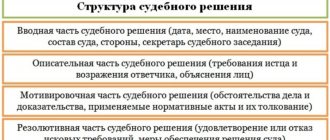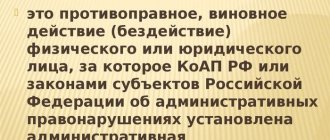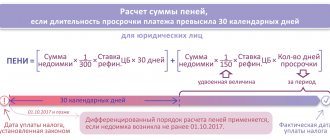FAS Russia is a government agency that supervises the activities of monopolies, government procurement, and monitors compliance with the law on protection of competition and advertising. Competent to apply to judicial authorities, consider cases of violation of antimonopoly laws, make decisions, etc.
Extrajudicial and judicial appeal procedure
An act of the Federal Antimonopoly Service can be challenged departmentally or in court.
In the first case, the application is considered by the department itself, in the second - by the arbitration court.
When choosing a body to appeal a FAS decision, you should consider:
- Pre-trial appeal procedure is not required.
- The departmental appeal method is not suitable for all acts.
- The department itself is not often inclined to overturn the decisions of employees, so if you receive a negative result, you will most likely need to go to court.
- Only a judicial appeal suspends the effect of the order.
- The supervisory authority, unlike the judicial one, cannot restore the missed deadline.
What complaints are addressed to the FAS?
Every citizen can send a request to restore or protect violated rights, freedoms or interests, their personal or other persons. This is called a complaint. The FAS is obliged to consider such appeals under antimonopoly and advertising laws, the contract system, the purchase of goods, services, and works by individual business entities, as well as under the legislation regulating urban planning activities. The period for appealing FAS decisions is 5, 7 or 30 days, depending on the type of complaint. The competent review body is the central office or territorial body. In these matters, the FAS decision bank comes in very handy. With its help, you can monitor the progress of the review and determine whether the measures taken are sufficient or whether a legal challenge makes sense. Choosing the jurisdiction of disputes and preparing a complete set of documents can be difficult. Legal will save your time and take care of organizational issues, as well as prepare a competent, reasoned complaint.
Deadline for appealing decisions of the FAS of Russia
If you disagree with the resolution, special attention should be paid to the deadlines. A complaint against the decisions of the Federal Antimonopoly Service must be filed within three months.
A complaint to the federal antimonopoly authority against a decision that violates the uniformity in the application of antimonopoly legislation must be filed with the federal authority within a month. An act adopted by a collegial body of the antimonopoly service on a complaint may be appealed to a judicial authority within a month from the date of entry into force.
Missing a deadline will not be grounds for refusing to accept an application. If there is evidence of valid reasons due to which the appeal did not take place on time, you can petition the court to restore the deadline.
Analytics Publications
The procedure for filing and considering complaints to the FAS Russia
What is a departmental appeal?
The right of a person to challenge a decision and (or) order of the territorial antimonopoly body (hereinafter referred to as OFAS) out of court is enshrined in Part 3–16 of Art. 23 of the Federal Law of July 26, 2006 No. 135-FZ “On the Protection of Competition” (hereinafter referred to as the Law on the Protection of Competition). In accordance with these norms, collegial bodies are created within the structure of the FAS Russia, which, in particular, are engaged in the review of acts of the FAS in cases of violation of antimonopoly legislation (hereinafter referred to as AML).
The legislation does not disclose the structure of collegial bodies; it only states that their composition is approved by the head of the department.
The composition of the appeal boards is formed according to the rules for forming a commission of the FAS Russia to consider antimonopoly cases (the rules are established in Article 40 of the Law on the Protection of Competition), taking into account the specifics of the product market in which the AMZ violations were committed. The Presidium of the FAS Russia can also review decisions of the OFAS, to which the most significant cases for the further development of practice are transferred.
The regulation of the procedure for filing and considering a complaint to the collegial bodies of the FAS Russia is currently fragmented and incomplete.
What acts of antimonopoly authorities can be challenged?
Decisions and (or) orders of the Federal Antimonopoly Service may be revised if they violate the uniformity in the application of AMZ norms. Consequently, only those acts that contain a conclusion that the AMZ company has violated the departmental appeal procedure are subject to appeal.
Acts issued in connection with violations of other legislation, for example on procurement or on price (tariff) regulation, are not reviewed by the collegial bodies of the FAS Russia, unless they also contain conclusions about non-compliance with AMZ norms.
In practice, by way of departmental appeal, it is possible to challenge the decisions of the Federal Antimonopoly Service regarding violations of the legislation on trade activities. Formally, this regulation does not apply to AMZ, but the collegial bodies of the FAS Russia in such cases accept complaints and make decisions on the merits. Examples: notification of acceptance for consideration of the complaint of JSC "The Seventh Continent" against the Decision of the Yaroslavl OFAS dated March 20, 2018 in the case of violation of trade legislation No. 03-03/09-17; Decision of the Federal Antimonopoly Service of Russia dated March 20, 2018 No. SP/21626/18.
What are the requirements for a complaint?
The appeal procedure within the framework of a departmental appeal is generally enshrined in the Law on the Protection of Competition and Order of the Federal Antimonopoly Service of Russia dated 04/07/2016 No. 422/16 “On the procedure for the work of collegial bodies of the Federal Antimonopoly Service.”
These documents do not contain provisions that would clearly regulate the filing of a complaint, its content and form. This means that we should proceed from the general requirements provided for complaints to the FAS of Russia on other issues.
Deadline for appeal. You can appeal the FAS act within one month from the date of its adoption. If the applicant does not meet this period, the FAS Russia will return the complaint without considering the merits, but there will remain the opportunity to challenge the decision of the FAS in court within the period established by the Law on Protection of Competition. Current legislation does not provide for the possibility of extending or reinstating the missed deadline for filing a “departmental appeal” even for a good reason (see, for example, Resolution of the 9th AAS dated March 20, 2017 in case No. A40-216779/2016).
Complainant. The Law on the Protection of Competition allows participants in a case of violation of the AMZ to file a complaint with the FAS Russia. However, as practice shows, someone who was not involved in the original case can also file a complaint if their rights and interests are violated by the contested act. This conclusion is based on the fact that such a person should initially have been involved in the consideration of the case (Resolution of the Arbitration Court of the Moscow Region dated April 27, 2017 in case No. A40-145056/2016). If the FAS violated the procedure for involving him in the case, this cannot negatively affect the ability of such a person to file a complaint.
Strategy for appealing acts of the Federal Antimonopoly Service via departmental appeal
What are the grounds for canceling or changing the decision of the Federal Antimonopoly Service
The basis for canceling or amending OFAS acts within the framework of a departmental appeal is a violation of uniformity in the application of AMZ norms by virtue of Part 11 of Art. 23 of the Law on Protection of Competition.
In law enforcement practice (Resolution of the Administrative Court of the Moscow Region dated October 27, 2017 in case No. A40-210365/2016) it is rightly noted that a departmental appeal does not involve a re-examination of the case on the merits, but a study of the evidence collected by the Federal Antimonopoly Service and an assessment of its conclusions for compliance with the requirement of uniformity in application AMZ. New evidence that was not the subject of the OFAS assessment should not be accepted or evaluated.
What means of evidence and arguments to use
To evaluate the decision of the Federal Antimonopoly Service for uniformity in the application of AMZ norms, we recommend using:
- clarifications of the Presidium of the FAS Russia;
- methodological recommendations of the FAS of Russia;
- clarifications from the Federal Antimonopoly Service of Russia on the application of AMZ;
- law enforcement practice of the antimonopoly authority;
- departmental appeal practice of the FAS Russia;
- judicial practice;
- acts of the Constitutional Court of the Russian Federation;
- clarifications from authorized government bodies.
The text of the complaint should include those arguments that indicate a violation of the OFAS uniformity criteria.
1. The presence or absence in the case materials of sufficient evidence of violation of the AMZ (decision of the Federal Antimonopoly Service of Russia dated April 27, 2017 No. 09/30711/17, dated October 11, 2017 No. SP/73099/17).
A sample of a possible formulation of the argument: “The materials of the case on violation of antimonopoly legislation do not contain sufficient evidence, which is a necessary condition for identifying ... [indicate the elements of the violation - for example, an anti-competitive agreement], which does not comply with either the requirements ... [the norm of the Law on Protection of Competition] or consistent practice antimonopoly authority, confirmed by judicial acts [specify].”
2. Compliance with or a significant deviation from the procedure for considering a case of violation of the AML, which influenced the result of the consideration of the case (Decision of the FAS Russia dated 02/14/2017 No. SP/8942/17; Resolution of the 9th AAS dated 05/04/2018 in case No. A40-124857/ 2017).
A sample of a possible wording of the argument: “The OFAS Russia, when considering a case of violation of antimonopoly legislation, committed the following significant violations of the procedure for considering the case... In the law enforcement practice of antimonopoly authorities, as well as courts, the stated facts are clearly assessed as violations that affect or may affect the results of the consideration of the case on violation of antimonopoly legislation [link to practice]. These violations led the OFAS Russia to a conclusion that contradicts the requirement of uniform application of antimonopoly legislation, namely...”
3. Completeness and correctness of the analysis of the state of competition in the product market (Decision of the Federal Antimonopoly Service of Russia dated October 31, 2017 No. SP/75505/17).
At the same time, the presence in the analytical report based on the results of the analysis of the state of competition of inaccuracies that do not worsen the position of persons and do not affect the qualification of the violation indicates that the decision of the Federal Antimonopoly Service meets the criterion of uniformity in the application of the AMZ norms. In particular, in the Decision of October 4, 2017 No. SP/72256/17 of the FAS Russia, leaving the applicant’s complaint without satisfaction, about
A sample of a possible formulation of the argument: “The OFAS Russia, when considering a case of violation of antimonopoly legislation, the provisions of antimonopoly legislation were significantly violated, in particular, an analysis of the state of competition in the product market was carried out with a deviation from the regulatory requirements [specify]. The violations committed do not correspond to the established practice of applying antimonopoly legislation [give practice]. Incorrect determination of the product/geographic boundaries of the product market / composition of business entities, their shares in the product market led the OFAS Russia to the erroneous conclusion that... [for example, Y occupies a dominant position in the market for the sale of liquefied hydrocarbon gases within the borders of the Altai Republic]. The presented approach to analyzing the state of competition in the product market violates the uniform application of antimonopoly legislation [give examples of correct analysis and conclusions].”
4. The correctness of the legal qualification of the behavior of an economic entity.
This criterion has legal significance for canceling the decision of the Federal Antimonopoly Service in the event that the objective side of the violation is either absent or cannot be established at the time of consideration of the case within the framework of a departmental appeal (decision of the Federal Antimonopoly Service of Russia dated July 18, 2017 No. SP/48956/17, dated November 27. 2017 No. SP/86314/17).
If the OFAS violated the uniformity in the application of AMZ norms when assessing compliance by business entities with antimonopoly requirements, both in terms of the legal qualification of actions and in terms of establishing the objective side of the violation, and if this violation can be eliminated at the stage of departmental appeal based on the case materials, then based on the results of the consideration complaints FAS Russia changes the decision of the territorial body.
Thus, by Decision of the Federal Antimonopoly Service of Russia dated January 19, 2018 No. SP/3092/18, the decision of the Ulyanovsk OFAS was changed in terms of reducing the composition of auctions at which the fact of concluding and implementing anti-competitive agreements was established.
Common Mistakes
When preparing complaints, applicants usually make the following mistakes:
- base their position on evidence that was not the subject of consideration by the Federal Antimonopoly Service;
- formulate arguments exclusively in the context of procedural violations committed by the Federal Antimonopoly Service, regardless of the occurrence of consequences that influenced the outcome of the consideration of the case on violation of the AML;
- use those arguments that are ambiguously perceived in judicial practice, but regarding the validity of which the FAS Russia has developed a consistent negative assessment;
- justify their position with references to a large number of law enforcement practices that ambiguously assess the relevant factual circumstances;
- use as an argument a reference to the absence of any law enforcement practice on the issue identified in the complaint, as well as to the lack of clarification from the FAS of Russia.
When developing a strategy for appealing through a departmental appeal, we recommend assessing the degree to which the arguments stated in the complaint comply with the criterion of uniformity in the application of AML norms.
Procedural nuances
Appealing the decision and (or) order of the Federal Antimonopoly Service in accordance with the departmental appeal procedure does not deprive the applicant of the right to simultaneously appeal to the arbitration court.
In this case, some procedural features should be taken into account.
1. As soon as the arbitration court accepts for proceedings an application to appeal an order of the antimonopoly authority, the execution of this order is suspended until the day the court decision enters into force (Part 2 of Article 52 of the Law on Protection of Competition).
2. Filing a complaint to the FAS Russia does not suspend the effect of the OFAS order. It will be subject to execution within the time limits established by the territorial antimonopoly authority, despite the fact that it is disputed on its merits. For failure to comply with an order, a person may be held administratively liable under Art. 19.5 Code of Administrative Offenses of the Russian Federation.
3. Appealing in court only the decision of the Federal Antimonopoly Service (without simultaneously appealing the order) will also not invalidate the order and will not suspend its effect.
4. You can submit an application to the court within three months from the date of the decision on the case of violation of the AML and (or) the issuance of an order. When developing a strategy for judicial appeal, it is necessary to take into account the deadlines for the execution of the contested order established by the antimonopoly authority.
Thus, in order to suspend the effect of an order, it is necessary that the application not only be submitted to the arbitration court, but also accepted for proceedings. In law enforcement practice, a position is presented according to which if an application to invalidate an order is filed with the court before the expiration of the deadline for the execution of this act, but is accepted for proceedings by the court after its expiration, then the deadline for executing the order is considered missed and the effect of the order is not suspended (Resolution of the 2nd AAS dated 02/07/2018 in case No. A82-12247/2017).
Therefore, in order to remove the risks of administrative liability, we recommend focusing on the deadline for fulfilling the order, and not on the specified three months for appeal. Taking into account the procedural deadlines for accepting an application for proceedings (Article 127 of the Arbitration Procedure Code of the Russian Federation), the application must be submitted to the court no later than five working days before the expiration of the deadline for execution of the order.
When simultaneously appealing the decision of the OFAS and the act of the FAS of Russia, by which the decision of the territorial antimonopoly body was left unchanged or partially changed, it is necessary to take into account the rules of jurisdiction when filing a claim against several defendants (Resolution of the Arbitration Court of the Moscow Region dated May 30, 2017 in case No. A40-252855/2016) .
These recommendations will help protect the rights and legitimate interests of the applicant when appealing decisions and orders of the Federal Antimonopoly Service, both through departmental appeals and in court.
(For information: A review of the practice of applying antimonopoly legislation by collegial bodies of the department for the period from January 5, 2021 to July 1, 2021 was approved by the Protocol of the Presidium of the FAS Russia dated October 3, 2018 No. 10).
Pre-trial (departmental) appeal procedure
The advantages of this method of protecting rights include a simplified procedure and time savings. However, in terms of efficiency it is inferior to the judicial one.
If a departmental procedure is chosen for protecting the interests of the organization, the complaint is submitted to the territorial body of the FAS. In this case, the implementation of the requirements of the order is not suspended.
In a departmental manner, you can challenge:
- Failure to comply with the deadline for publishing in the Unified Information System information about the accepted complaint, or the date and place of its resolution.
- Failure to comply with deadlines established for registration and consideration of complaints.
- Refusal to resolve a complaint in violation of contract law.
It will not be possible to challenge administratively:
- Violations of contracts already concluded by the parties.
- Violation of the procedure for evaluating and comparing applications by the commission.
- Violations that have already been the subject of consideration by the court with a decision.
- Cases where the complaint has already been considered by the supervisory authority and a decision has been made on it.
How to contact
A written application must be submitted to the territorial authority that made the decision.
There are different ways to convey an appeal:
- through the department's reception;
- postal services;
- MFC;
- on the FAS website (via electronic reception);
- Government services.
The complaint should write:
- the name of the FAS body or the name and position of the person who made the decision;
- name of the applicant;
- his address, contact details (telephone, email);
- reasons for appeal;
- sign and date.
It is imperative to point out violations of the Regulations, which will help to recognize the appeal as justified.
If the application is signed by a representative of the organization, you must attach a copy of the power of attorney. The inclusion of other documents is at the discretion of the applicant.
The antimonopoly authority must resolve the case and make a decision within thirty days. If an inspection is required, the manager has the right to extend the consideration of the contested act up to thirty days, notifying the applicant of the extension of the period.
If a decision of a civil servant of a territorial body is appealed, the decision is made by the head of the relevant body.
A copy of the decision must be sent to the applicant within three working days.
We make a decision
Based on the results of consideration of the complaint, inspectors may refuse to satisfy it or recognize the decision made as illegal in whole or in part. The response is sent to the applicant in writing. The conclusion of the collegial body is also posted on the FAS website.
If the decision made is recognized as illegal in whole or in part, in order to establish the fact of violation of the legislation on the state civil service and apply disciplinary measures, or accept a verdict on other types of liability, the responsible executor of the complaint provides the head of the antimonopoly body with an official note in which the essence of the violation is stated and the officials who committed it are indicated. This is done with the aim of initiating the adoption of a resolution to conduct an internal audit of state civil servants.
Departmental appeal
A non-normative act drawn up by the commission can be appealed within a month to the collegial body of the FAS Russia. True, only decisions that violate the uniform application of competition rules can be appealed to the appellate court.
Complaints against decisions made under the laws on advertising, competition, and the contract system are not considered by a higher collegial body.
The pre-trial procedure cannot be used to appeal decisions and orders of the FAS Russia and its collegial bodies. To make such an appeal, you must file an application with the court.
How to find it on the website of the Federal Antimonopoly Service
1. Go to the main page of the official website of FASGORU and go to the “Solution Database” section.
2. Use keyword search.
3. Use advanced search for a more detailed selection.
4. Use the databases on the official websites of the FAS Russia in the regions. Here's an example.
IMPORTANT!
Don't look for the website - https://solutions.fas.gov.ru. Browsers will redirect the request to a new page - https://br.fas.gov.ru/.
How to appeal a FAS decision to an arbitration court
What can be complained about
In court it is possible to challenge not only the actions and inactions of officials, decisions and orders of commissions, but also collegial bodies of the antimonopoly service.
Rules for going to court
A statement about the non-compliance of a decision of a regulatory body with a regulatory legal act will have to be paid with a fee: 300 rubles for individuals and 3,000 rubles for organizations.
Appealing FAS decisions in court suspends its effect until the court decision comes into force.
The application is sent to the arbitration court at the location of the defendant.
What requirements must be taken into account
The application must be competent, understandable, substantiated by the rules of law and in writing. Its structure includes the following parts:
- An introductory note, which indicates the name of the court, the parties, their details (name of the person submitting the application, TIN, addresses, contacts).
- Descriptive. It reveals the circumstances of the case.
- Motivational. Contains a description of illegal decisions and actions, their legal assessment with reference to the rules of law, evidence.
- A petition in which the requirements are indicated.
In order for an application sent to the arbitration court to be accepted, it should be written taking into account the conditions set out in parts 1 and 2 of Article 125 of the Arbitration Procedure Code of the Russian Federation.
We have prepared a template for an application to the Arbitration Court to cancel the decision of the Federal Antimonopoly Service. .
Failure to comply with the requirements may result in the application being abandoned or, worse, the claim being denied. You can avoid problems by entrusting the preparation of the application to our lawyers, who know how to do everything correctly.
Required documents:
- receipt of payment of state duty;
- a postal receipt proving that a copy of the application was sent to the government agency;
- extract from the Unified State Register of Legal Entities (USRIP);
- confirming the authority of the person who signed the application;
- power of attorney;
- a copy of the appealed decision;
- proof.
How complaints are handled
Cases of appealing unlawful decisions of the FAS in court are considered according to the rules of claim proceedings, with some features. In particular, the burden of proving the legality of the decision lies with the authority. The consideration of a case involving public legal relations should not last more than three months.
However, in practice one should not rely on this principle: without the active position of the applicant, the case can be lost.
The decision can be appealed to the appellate arbitration court within a month from the date of adoption.
Government procurement, Lawyer
Save:
What to include in the application
The statement of claim must include the following information:
- The name of the body that made the contested decision.
- The name and details of the act that will be challenged.
- A list of the applicant’s rights and interests that are violated by this decision.
- References to legislative and other regulations that, from the applicant’s point of view, were violated.
- Request for recognition of the decision as invalid.
The statement of claim must be accompanied by the actual text of the contested act , as well as the documents specified in Article 126 of the Arbitration Procedure Code of the Russian Federation. Among them are:
- document confirming payment of state duty;
- confirmation of sending a copy of the statement of claim to other persons involved in the case;
- a copy of the state registration certificate of the company or individual entrepreneur;
- extract from the state register;
- documents confirming the circumstances of the statement of claim and some others.
Procedure for consideration
The complaint must be considered within two months from the date of acceptance. This period is extended for another month if the collegial body needs to request additional information.
The persons who participated in the initial consideration and the representative of the FAS department that issued the act that is being appealed have the right to take part in the consideration of the complaint.
The peculiarity of a departmental appeal is that the effect of the order issued by the first instance is not suspended. This can be assessed as a gap in regulating the issue of departmental challenges to acts.
A decision by a collegial body is made subject to the participation of at least half of the body’s members.
The legislative framework
Both participants and customers can complain about the illegality of FAS decisions on public procurement issues. This is an effective legal tool to protect your interests and restore the rights of the parties. The legislation of the Russian Federation does not provide a complete list of grounds for filing a complaint.
Part 1 of Article 52 of 135-FZ “On the Protection of Competition” talks about 2 ways to appeal the FAS decision:
- Judicial procedure - through the arbitration court.
- In the collegial body of the federal antimonopoly authority.
When challenging FAS decisions, parties must use the provisions of the following regulatory documents:
- 135-FZ “On Protection of Competition”;
- Civil Code of the Russian Federation;
- Arbitration Procedural Code of the Russian Federation (APC RF) - proposes a procedure for judicial consideration of complaints;
- 44-FZ and 223-FZ - regulate all aspects of government and corporate procurement;
- Review of issues of judicial practice that arose in the course of cases on the protection of competition in court, approved by the Presidium of the Supreme Court on March 16, 2016.






